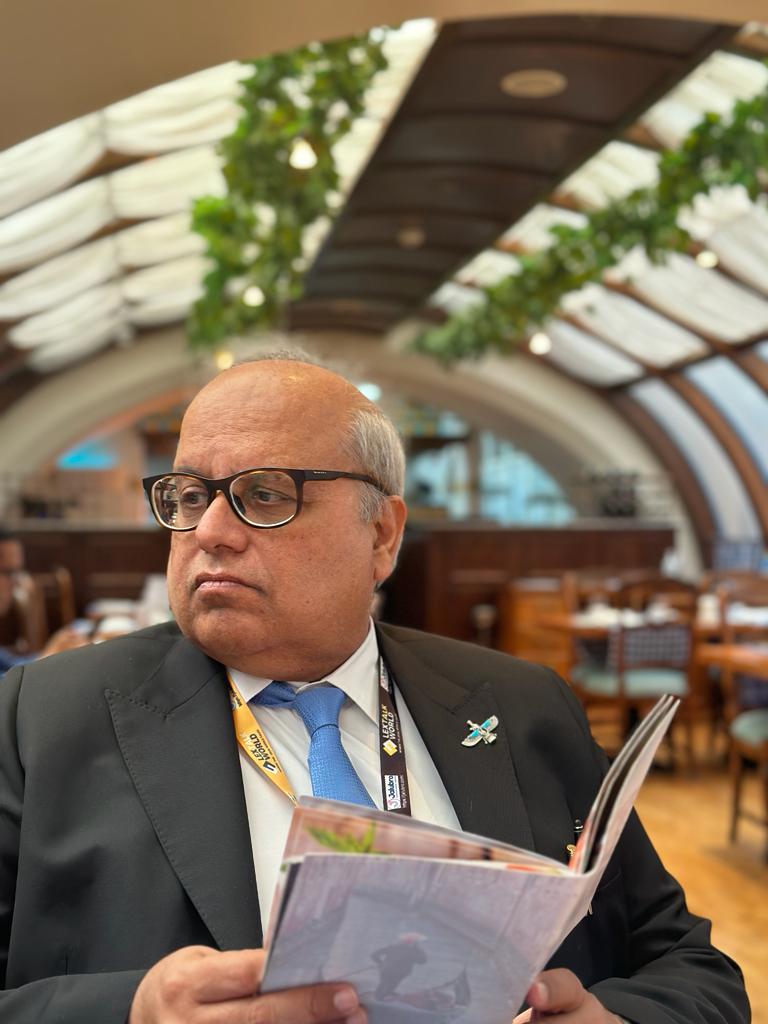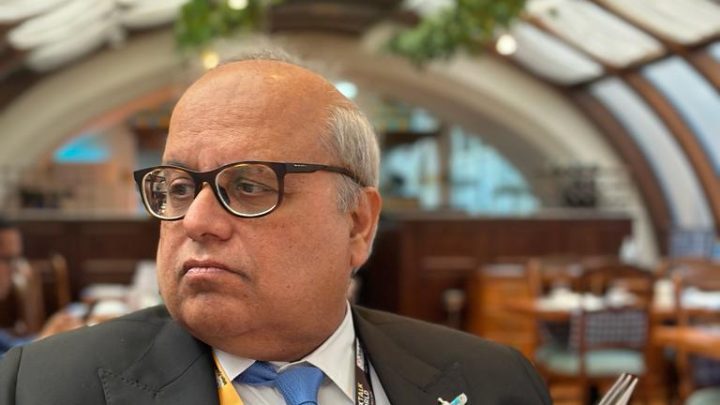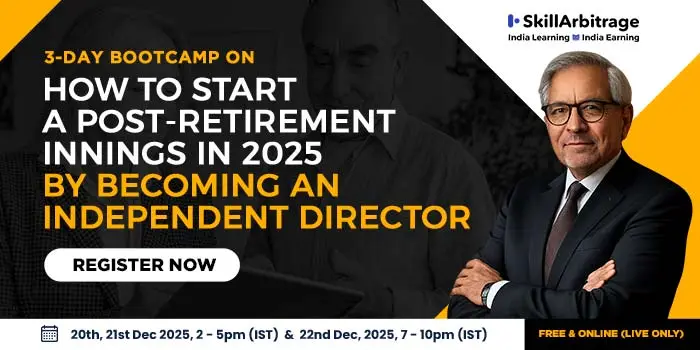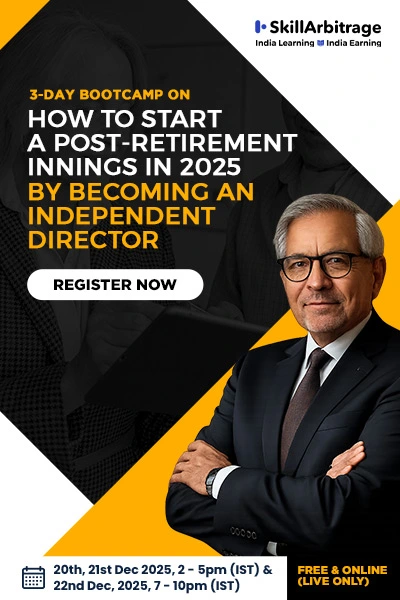Interviews
6735
0
0
“My thrust in the use of Artificial Intelligence is to see one day an autonomous body of knowledge, uninfluenced of facts and free from political and personal malaises, to provide a support system to the legal community on the merits and demerits of a lis to enable not only the legal practitioner but also all the stakeholders to understand where a judgement can possibly go”- Dr Sarosh Sam Bastawala, Senior Lawyer & Arbitrator, Argueing Counsel in Superior Court & Tribunals
This interview was taken by SuperLawyer Team
Posted on June 26, 2024
This Interview has been published by Pragya Chandni and The SuperLawyer Team

Could you share with us what initially inspired you to pursue a career in law, and how your early experiences shaped your path?
I cannot say that law was the first choice for a profession, but it was the unanimous opinion of my elders that as conditions for landowners were becoming difficult in the country, an In-house lawyer was required for a land-owning family, and so I was dumped in the quadrant of law. I have a principle in my life that if I must do something I should do it well, so I immersed myself in the study of law with great diligence and unlike most of the lawyers my favourite subject always was Jurisprudence i.e. to understand the philosophy and logic that goes behind all laws. They said that the first laws of the world were the ten commandments, handed over to the Prophet Moses by God himself. Scholars in antiquities like Plato and Manu interpreted these and with the liberal assistance of the British who saw it fit to impose the Anglo-Saxon system upon us.
During the early part of my career, (if I remember correctly), I was a Junior with a senior lawyer who was then the Standing Counsel for the Department of Home Affairs in the State of Andhra Pradesh. However, within six months my Senior was elevated as a District Judge and for a better part of a decade took over his job of standing council for the department of Home Affairs. Later in the early 1990’s, I took up independent practice.
Your educational background is quite extensive, with degrees in commerce and law, as well as research in artificial intelligence. How did your academic journey influence your approach to the legal profession?
On the academic side immediately after LL.B., I joined LL.M. with “Jurisprudence”, as the main subject. However, after LL.M. there was nearly a decade when I undertook the then seemingly impossible subject of Artificial Intelligence with a research topic of “The Human Quest for Assurance in the Dispute settlement mechanism. A study of the Doctrine of Certainty in the Judicial Process”. At a time the subject of Artificial Intelligence was then in its very nascent stage and even though the term Artificial Intelligence, was coined between 1956-1960, and were called “expert system” in the late 80’s. In the early 1990’s the concept of the Heuristic based model of creating a tree of knowledge was proposed and this was the best suited for legal research. Then in Chicago a company called Mead Data Central had managed to convert thousands of American reports into computer readable form and were offering the same to lawyers over various rudimentary tools over FTP and other protocols available then. Mead Data central went down to become the Lexis Nexis of today.
My degree in commerce may have only sharpened my business acumen, not that I can speak about it much. My law degree, being a lover of history, I made it a point to know and understand the rationale and the logic behind every rule of law and its development from the simple societies of antiquity to the complex ecosystems today. My quest in the field of Artificial Intelligence was mostly focused on seeking a sense of certainty in the dispute resolution process for any prospective litigant and practitioner, for in fact this is now enveloped in uncertainty, mainly due to the length of the litigation, the abilities and perception of various parties and lastly the most uncertain area is the exercise of discretion by the court. Sadly, my profession does not use Artificial Intelligence, for its true purpose and purport, and is mostly used to drive home a point, even if the same is wrong or misconceived.
With over four decades of experience in litigation and dispute resolution, what have been some of the most challenging cases you’ve worked on, and what did you learn from them?
As mostly a lawyer in commercial and contractual disputes in private practice my career has been confined to mundane interpretation of civil and contractual laws. In one matter which was for the forbearance for the invocation of Bank Guarantee, a very early case in this country were Courts at that time held that the duty of the bankers to fulfil his obligations was sacrosanct, the doctrine of Egregious frauds was invoked, to put on hold a so-called performance of the bank in favour of the fraudulent beneficiaries. Another Grey area of contractual law is the interpretation and enforcement of written form contracts, that is printed contracts normally thrust upon unsuspecting customers mostly by bankers, insurance companies, and large organisations. The classical theory of contract is an agreement between two persons who have similar bargaining power to arrive at a Consensus Ad idem, or meeting of minds, to form a contract, but this is absent in the matter of Written Form Contract, where the conditionality in the clauses are predetermined by one party. Where one powerful party imposes and dictates terms to a significantly weaker party with no bargaining power this needs to be regulated by Law.
You have significant expertise in international arbitration and mediation. How do you navigate the complexities of framing contracts with enforceable arbitration clauses, especially across different jurisdictions?
In International Commercial Arbitrations, particularly where invocation or denial of insurance claims are concerned, the practitioner must put in a certain degree of his mediation skills into practice also. Enforceability of cross border contracts, particularly were jurisdictional courts are perceived to be biased, careful steps have to be taken first to bring the contracting party to a common forum of arbitration, conduct the arbitration obtained the award in whatever it may be and lastly the sheer vulgarities of domestic Courts and tribunals for the enforcement of the award and the loose seemed framework of the ICC is grossly inadequate to deal with belligerent parties.
Your profile mentions various specialisations, including maritime law, aviation law, and commercial law. What drew you to these particular fields, and how do you manage to stay updated with the ever-evolving legal landscape?
Many of the International commercial disputes, particularly when they deal with goods in transit require knowledge of laws of that particular mode of transportation like by sea and air sometimes in adjudication of contributory negligence and other related defences known to the law of torts. Intricate knowledge of systems of applicable law to the subject as well as territorial application are in play, ascertain aspects of maritime law are also relating to conditionalities.
As the chairman and founding trustee of The Heuristic Foundation and trustee of the Zal Maneck Foundation, how do you balance your legal career with your responsibilities in these educational and real estate management roles?
It was during the formative years of the 1990’s that the Heuristic Foundation was created for the advancement of knowledge in various disciplines and a few institutions are aided by this foundation. In the matter of the Zal Maneck Foundation this is purely a family land holding trust, controlling and managing various vast bits of a Real estate owned by my family personally. After the passing of all my elders, I now head this organisation.
You’ve conducted research on artificial intelligence in law and authored several works. Can you tell us more about your research interests and how you see the role of AI evolving in the legal field?
My thrust in the use of Artificial Intelligence is to see one day an autonomous body of knowledge, uninfluenced of facts and free from political and personal malaises, to provide a support system to the legal community on the merits and demerits of a lis to enable not only the legal practitioner but also all the stakeholders to understand where a judgement can possibly go.
Finally, with your extensive experience and knowledge, what advice would you give to fresh law graduates who are just starting their careers in the legal profession?
As my journey also, has been one of very hard dedicated work, any new entrant in this field, particularly first generation lawyers should know and understand that hard work and thorough knowledge of the particular subject, along with the historical background, and all surrounding circumstances should be well ingrained in the mind of the lawyer, as he stands up to face the bench or when he drafts a contract.
Get in touch with Dr Sarosh Sam Bastawala-







No comments yet
Be the first to share your thoughts about this interview.